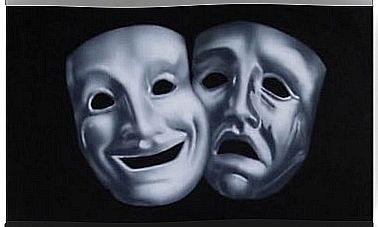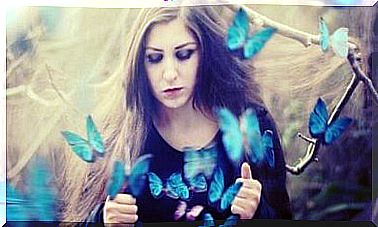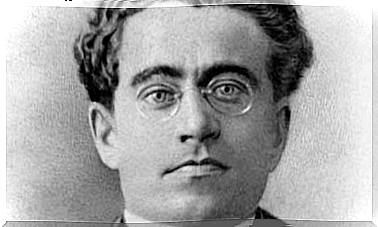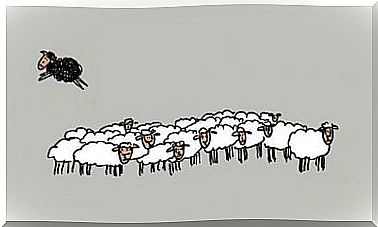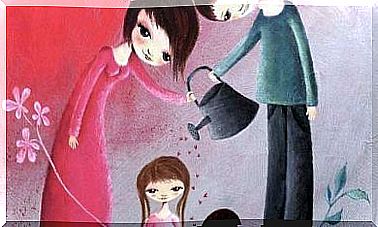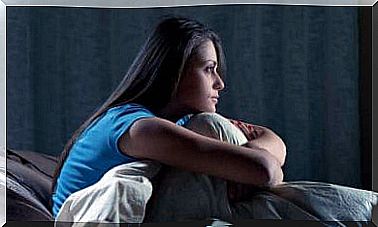5 Habits Of People With Hidden Depression
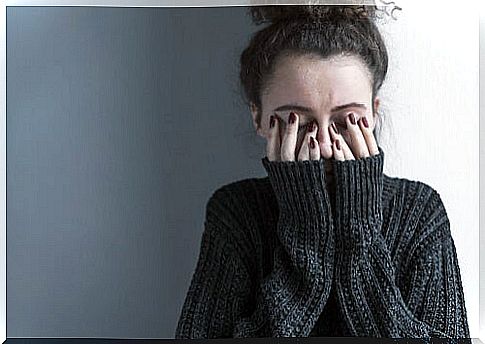
Hidden depression is a condition in which a person does not present the typical symptoms of depression, but other patterns and features that act as a disguise. In fact, the first to overlook this situation is the person who suffers from it. That is precisely what it is about: keeping a distance from discomfort.
This process of trying to encapsulate or mask the symptoms of depression occurs unconsciously or preconsciously. It is not that the person deliberately wants to pretend something that he is not or that he does not feel. Concealment is a way of defending oneself from suffering that the affected person may not feel capable of dealing with.
Of course, hiding these types of problems from others, and from yourself, is not a good strategy to solve them. On the contrary, sometimes they only become chronic. How to recognize that there may be a hidden depression? These are five signals sent by those who suffer from it.
1. They are obsessively sociable
People with hidden depression have a hard time being alone. Others are a kind of pretext, because they fear being alone with themselves. If you don’t have people around you, acute feelings of sadness surface more easily.
This is why they are often obsessively sociable. They are always looking for a way to organize meetings, look for social events and the like. If they can’t, then they just call their family, friends, colleagues, etc. on the phone. They do not want to see loneliness even remotely, because it would act like a mirror, making them think.

2. They overemphasize their well-being
It is very common for an exaggerated behavior to reveal an attempt to compensate for the completely opposite feeling. It often happens, then, that people with hidden depression tend to overestimate their supposed state of well-being. If you ask them how they are, they will not say that they are good, but “great” or “very good”.
As we noted, this is an unconscious form of compensation. It is almost an attempt to convince yourself and to convince others about the state of mind . A smokescreen to ward off the idea of discomfort and thus keep a distance from depression.
3. They repeatedly talk about the past
In hidden depression, as in any form of depression, the past plays a leading role. That is why it is very common for there to be issues from yesterday that always come up in conversations with people who manifest depression in this way. It is possible that they refer to such matters in a humorous way, even, but the important thing is that they allude to them frequently.
Failure to let go of the past is an indicator that there are unresolved experiences. That past could have been positive or negative, it doesn’t matter. What is relevant is that someone continues to relive what has already happened through evocation. It implies that there are strong ties with yesterday and that it has not been possible to locate oneself in the real present.
4. They have disorderly eating habits.
Eating disorders are always indicators of some emotional distress; in particular, of depression. Especially if the changes in appetite are not temporary, but tend to become permanent, and even become more marked each time. These habits include eating less than normal, more than normal, or doing it in an anarchic or strange way.
It is very common that one of the forms of expression of hidden depression has to do with appetite. Sometimes the person does not stop eating, or eats more, but does show disgust for certain foods, or has very frequent digestive problems. There are also cases in which what occurs is an obsession to eat something or do it in a certain way.
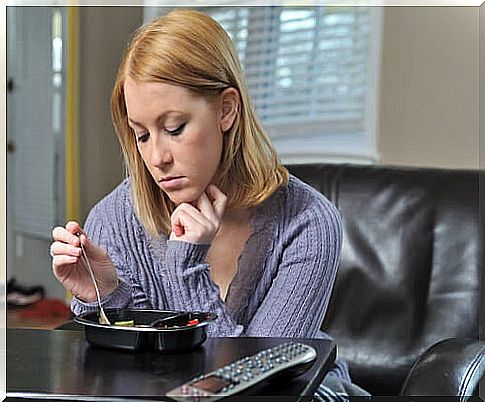
5. They cannot sleep peacefully
Sleep is another of those factors that makes emotional discomfort visible. As in the case of food, what can be seen in these cases is that there is some kind of anomaly that can be of many types. Usually you get too little or too much sleep.
Sometimes other behaviors appear such as nightlife, difficulties sleeping in bed in a horizontal position, intermittent dreams, etc. Any of these forms of rest, clearly inappropriate, could be a symptom of hidden depression.
Of course, all these indicators must be carefully evaluated. Depression is more than a state of sadness or disguised denial and has nothing to do with a temporary state of confusion either. We are talking about a condition that must be evaluated by trained personnel.


